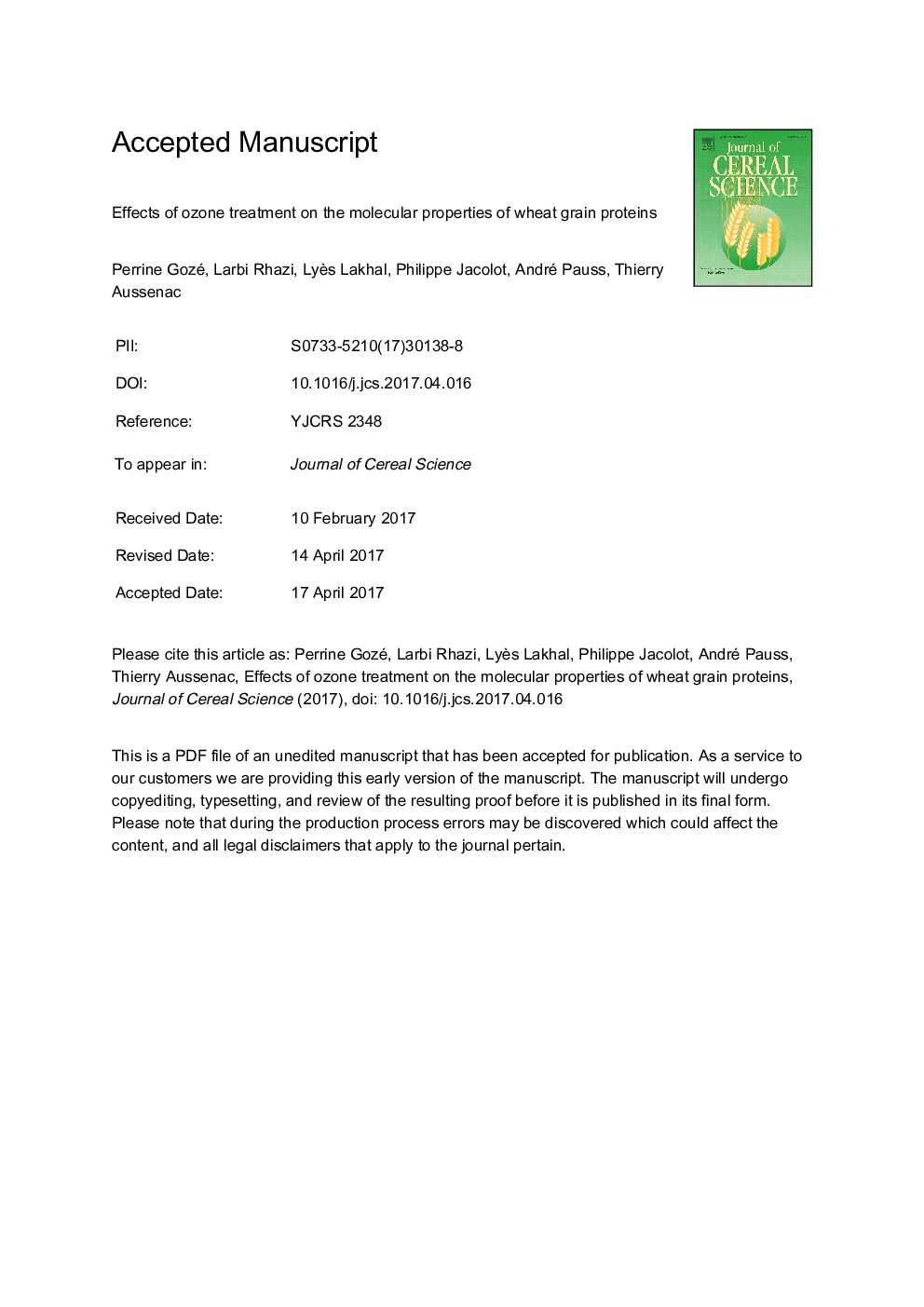| Article ID | Journal | Published Year | Pages | File Type |
|---|---|---|---|---|
| 5762377 | Journal of Cereal Science | 2017 | 33 Pages |
Abstract
Ozonation causes a significant reduction in the SDS solubility of the wheat prolamins, which can reasonably be attributed to conjugate effects of an increase in molecular dimensions and an increase in the compactness of the protein polymers initially present. In fact, our results demonstrate that this general reinforcement of the aggregative status of prolamins due to ozonation of wheat grains results from (i) the formation of new intermolecular S-S bonds, (ii) to a lesser extent, the formation of other types of intermolecular covalent cross-links (dityrosine cross-links) and finally, (iii) significant changes in secondary structure. By significantly affecting the molecular properties of wheat grain prolamins, ozone leads to profound changes in the rheological properties (i.e. increase in the tenacity and a great limitation of the extensibility) of the flours and/or doughs obtained.
Keywords
Related Topics
Life Sciences
Agricultural and Biological Sciences
Agronomy and Crop Science
Authors
Perrine Gozé, Larbi Rhazi, Lyès Lakhal, Philippe Jacolot, André Pauss, Thierry Aussenac,
